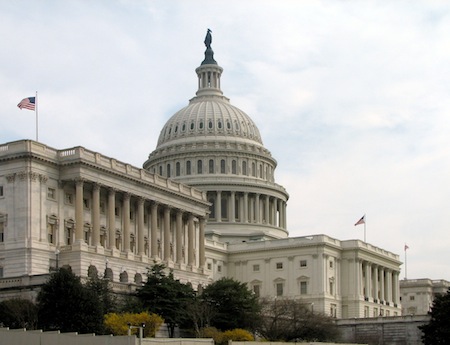Democratic Reps Push FCC to Release Set-Top Proposal

The smarter way to stay on top of broadcasting and cable industry. Sign up below
You are now subscribed
Your newsletter sign-up was successful
Representing both coasts' hotbeds of video production, Reps. Yvette Clarke (D-N.Y.) and Tony Cárdenas (D-Calif.) called Wednesday for the FCC to release the text of the evolving set-top box proposal.
That proposal has gone from "unlocking the box" to unlocking the app," which is more along the lines of the app-based proposal offered up by NCTA: The Internet & Television Association but with enough hereditary copyright and contract issues from the previous proposal to make it still unpalatable to ISPs and studios, at least in the form pulled from the FCC's public meeting two weeks ago.
Clarke, as vice chair of the Congressional Black Caucus, has been pushing the FCC to delay a vote (and publish the text) over concerns about the impact of the proposal on copyright, contracts and content of diverse programmers.
On the call, Clarke said she had not heard back from the FCC on her request for an impact study and that the GAO was ready to launch the study she asked it to conduct on the set-top proposal but, given that it has changed substantially from the original, wants the FCC to publish the text so GAO is studying the right plan.
Clarke and Cárdenas were joined by Marc Morial, president of the National Urban League, and Brent Wilkes, national executive director of LULAC, all on the same page, which is to say they were unhappy the FCC had not done an impact study, unhappy the FCC had not published the text, and looking for a delay in a vote on the item until those things happened.
That would mean voting on a further notice of proposed rulemaking that included the text, then giving stakeholders time to comment.
Cárdenas said he appreciated the fact that the item was pulled from the agenda and said he hoped it meant Wheeler would conduct an additional rulemaking. “This is not a Beltway issue,” he said. “This is about consumers. This is about employees. This is about a very delicate ecosystem.”
The smarter way to stay on top of broadcasting and cable industry. Sign up below
Morial said there seemed to be "a rush to get something done" without the necessary basic independent analysis and a chance for the public to view and comment on the proposal. He said they did not want delay for delay's sake but to make sure those steps are taken.
Currently, after the item was pulled from the meeting agenda by FCC chairman Tom Wheeler and placed on circulation, a majority could vote it any time so it would not get a public meeting airing. And since the chairman imposed sunshine rule prohibitions on any stakeholder input while the commissioners are vetting the proposal on circulation, it would be voted without any of that stakeholder input.
Clarke said it would be "extremely disappointing" if that happened. She said it was not as though her concerns were not valid, shared by others or submitted in writing. "I think that a public regulatory body has an obligation to go above and beyond in terms of transparency."
She said that to come out with a final rule that is such a departure from the original, and that only commissioners and staff were privy to is "not acting in good faith," adding: "We will not relent on this issue."
There are programming diversity advocates on both sides. Rep. Anna Eshoo (D-Calif.), Sen. Ed Markey (D-Mass.), and BET founder Bob Johnson support the set-top proposal, saying it would give independent and nascent diverse programmers a better chance to be noticed if they were searchable alongside traditional fare.
Asked whether the diversity issue wasn't breaking more along the lines of incumbent vs. startup, Morial said no. "We don't weigh in because we own a station, or used to own a station or plan to enter into the business. We represent the broader voice of the civil rights community."
He said their voice, rather than that of the item proponents, including Johnson, was the one speaking for the public interest.
Morial said they were not trying to protect incumbents at the expense of promoting access to new, diverse, voices, as Wheeler has suggested his proposal would do.
"The FCC's record in promoting diversity is not good," he said. "They don't really come to the table with broad credibility on that issue." He said that if the FCC had followed the league's suggestion years ago to do a disparity study, he said, rather than dragging their feet for a decade, it would have some evidence of the barriers and opportunities for diverse businesses.
He said the issue is whether the FCC proposal is going to expand opportunity, or is it instead a "mirage," a "false promise," and "an empty hand." He said that without independent analysis, no one can say just what the proposal is or would do.
Wilkes said that while the Latino community is not being sufficiently represented on TV today, the FCC proposal could make it worse if the “FCC games the system and drives us toward this new type of delivery system of free video supported by apps.”
Contributing editor John Eggerton has been an editor and/or writer on media regulation, legislation and policy for over four decades, including covering the FCC, FTC, Congress, the major media trade associations, and the federal courts. In addition to Multichannel News and Broadcasting + Cable, his work has appeared in Radio World, TV Technology, TV Fax, This Week in Consumer Electronics, Variety and the Encyclopedia Britannica.

